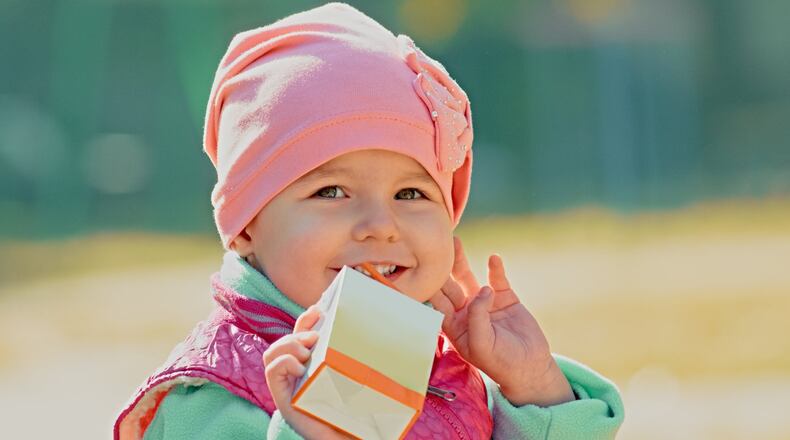“Fruit juice offers no nutritional benefit to children that young,” says Becky Gonter-Dray, registered dietitian at Dayton Children’s Hospital. “It can be hard for parents because it seems like a healthy option. But fresh fruit is a much better choice, because it provides dietary fiber and less sugar than juice. It can be pureed for children who are still getting used to solid foods, as well.”
The changes to policy come as American children continue to struggle with obesity at younger and younger ages. Drinking a lot of fruit juice can lead to excessive weight gain, as well as tooth decay.
The policy statement published in the June issue of Pediatrics expands on juice recommendations for other ages of children as well, including:
• Toddlers age 1-3: no more than 4 ounces a day
• Children age 4-6: no more than 6 ounces a day
• Children age 7-18: no more than 8 ounces a day
Toddlers should not be given juice from bottles or sippy cups that allow them to drink juice throughout the day. This fills their small tummies up with juice so they are not hungry for a meal later on. It can also lead to trouble with their teeth. Avoid juice at bedtime, as that can lead to more tooth decay as well. Encourage your children to eat whole fruits and tell them about all the other things they get in a piece of fruit that they don’t get in juice.
A few other tips regarding juice:
• Human milk or infant formula is sufficient for infants, and low-fat/nonfat milk and water are sufficient for older children.
• Consumption of unpasteurized juice products should be strongly discouraged for children of all ages.
• Children who take specific forms of medication should not be given grapefruit juice, which can interfere with the medication’s effectiveness. In addition, fruit juice is not appropriate in the treatment of dehydration or management of diarrhea.
This look at a children’s health or safety issue comes from Dayton Children’s Hospital. Email: newsroom@childrensdayton.org.
About the Author
